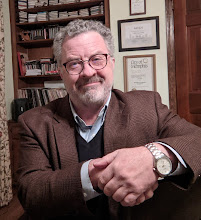On Albert Herring at U of M
On November 16 & 18
the opera department of the Rudi E. Scheidt School of Music at the
University of Memphis mounted a production of Benjamin Britten’s Albert Herring. The work is billed as a comic opera. Please get any notions of P.D. Wodehouse or Gilbert
& Sullivan out of your head straightaway. The opera might be comic if compared
to Britten’s Billy Budd since there
is no hanging in it. Dark nature of the
libretto aside, the real focus of the piece must be the music.
This production boasted an orchestra of 12 players including
strings, woodwinds, a piano, a harp, and a single French horn. If these few, these brave few did not feel as
though they had won the battle of Agincourt at the end of three hours, it would
only be because they were too exhausted to feel anything at all. The score is simply the most difficult I have
ever heard performed, and kudos to the
ensemble who did a masterful job. Under the direction of new musical director
Hyery Hwang, the players were kept busy page after page with some melodies and
a great many trills and run, now in dissonance, now in consonance, now behind a The dynamics were mainly appropriate and only occasionally
did the orchestral volume overpower the singers. Hwang’s focused conducting held beautifully together
sections which could very easily have gone off track.
singer who may or may not have the same rhythm or melodic line, now apart.
The opera, set in 1900 in East Suffolk, is in English and while the singing what
clear, the supertitles were helpful. The
voices were strong and good. Maria Fasciano as Lady Billows had the necessary
voice and presence to dominate the
stage. Showing a particularly excellent coloration of tone was Alexandra Colaizzi as Nancy. Notable also were the supposed stumbles of
the town’s children organized a rudimentary, village choral group; all of the
supporting roles were very well acted as well as sung.
No where was the singing more integral to the plot than in
act two, scene two when we finally see the protagonist Albert as played by Vernon
DiCarlo sing more than one or two lines as he had been so confined in the first
act. In this scene, his character comes to his own in both life choices and in
voice. And a fine voice Di Carlo displayed.
Throughout the opera, the cast did an admirable, even
extraordinary job, in bring vocal precision and strength to phrases which had
no corresponding orchestral support other than possibly chords and sometime
even dissonant chords at that. This is
no Verdi or Puccini work with a swelling orchestra setting up the singer for a
bring-it-to-the-balcony aria. You will not leave the theater humming any
familiar tune because there isn’t any. Debuting in 1947 Britten’s work is a
platform for the performers to reach deep and find the notes; our cast as
University of Memphis did so with confidence and beauty.
Albert Herring
will probably not be a work that you will want to see again and again. It is
absolutely one by which you can see the naked talent (or lack thereof) of both
musicians and singers. It is a litmus test and when passed, a thing of wonder
and admiration.



